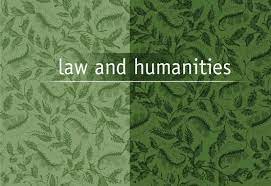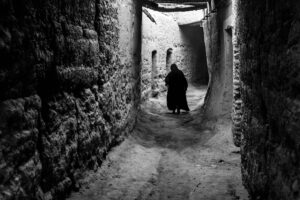Human Rights and Poetry in a Global Context, a special issue of the journal Law and Humanities, contains five articles from a diverse range of global perspectives and contexts including Ireland, Greece, Nigeria, and Tibet. These articles focus specifically on the intersection of contemporary poetry, as an engaged literary form, and human rights as a set of legal, political, and cultural discourses. Canonical publications in the interdisciplinary field of human rights, law, and literature focus overwhelmingly on prose texts. This Special Issue breaks new ground by focusing specifically on poetry. As Françoise Robin points out in her article here, the dominance of prose over poetry is not universal; poetry is a literary form of great antiquity and in Tibet, for example, it is still the most popular and prestigious genre today.

The articles of this volume attest to the role that poetry continues to play in public discourse in a global setting. The role of the poet and his/her status is far from uniform, however. In some of the contexts discussed here, the poet is afforded a relatively high cultural status. On the other hand, a number of articles in this issue reference poet-activists who have been killed or imprisoned by forces of the state. In other instances, the use of pennames or the publication of anonymous translations suggest the limits on freedom of expression.
A notable feature of Human Rights and Poetry in a Global Context is its attentiveness to diversity; based on multilingual research, these articles reference cultural, linguistic, and geo-political contexts that have very diverse and complex relations to law and human rights universalisms. That said, there are recurring themes that bring different articles into conversation with each other. Environmental and ecological concerns are to the fore in the articles based on Tibetan, Nigerian, and Irish poetry written in English, although the cultural, political, and legal contexts differ greatly. The implications of development-driven human rights paradigms and the limits of the legislative measures to provide protection for certain types of life-forms, both human and non-human, are central to those discussions.
Precarity and vulnerability, of both humans and non-humans, are a central theme in the article Poetry, Protest, and Environment: Human and Nonhuman Rights in Nigerian Literature by Sule Egya, Margaret Agu, and Safiyya Adam. Although there have been significant developments in environmental legislation in Nigeria, particularly in the wake of the Koko toxic waste incident of 1988, the authors point to the lack of effective implementation of relevant legislation and the mismanagement of ecological funds. These failings have had a devastating effect on local communities and their environments. The authors posit that in the lacuna between justice and reality, poetry forges ‘a socio-ecological vision’ that calls into question the extractive mind-set which threatens the ecosystems of rural areas in Nigeria. However, the poems examined by the authors unsettle any easy notions about the victim-perpetrator dichotomy; while they seek to hold those in power to account, they also acknowledge the complicity of local actors. In refusing to turn a blind eye to the shortcomings of the law and its implementation, these poets are advocates for a more effective and functional legal framework. Their emphasis on human responsibility to, and dependence on, other non-human life forms serves to underscore the need for a conceptualization of environmental legislation that is not anthropocentric.
This posthuman perspective is the major theme of Anne Karhio’s article Human Rights and Posthuman Poetics in Contemporary Irish Poetry. The poems discussed in this article are by Irish poets who write in English and who are keenly aware of their relatively privileged position at the receiving end of the global supply chain. Poets including Derek Mahon, Leontia Flynn, Justin Quinn, and Nick Laird portray the lyric subject as embodied, situated in a global technological and consumer network, and dependent on other human and non-human others. This is a contestation of the abstract, rational subject upon which human rights discourse and law is based. Anna Grear’s critique of the anthropocentric nature of environmental law and governance finds a parallel in these poems that explore and critique the conflict between the environment as corporate resource and ecosystems as life-sustaining habitats. Karhio argues that by calling into question the long-established ideological underpinnings of human subjectivity, these poets are essentially advocating for an understanding of rights and justice that moves beyond human exceptionality and pays due attention to non-human life forms and habitats.
The Limits of Poetically Writing/Righting Environmental Wrongs in Tibet by Françoise Robin focuses on the role of poetry as an alternative to legal recourse for Tibetans in the People’s Republic of China. Despite the legal protection afforded to minority nationalities under the 1984 Regional National Autonomy Law, Robin outlines the challenges faced by ethnic groups who are often perceived and portrayed as a threat to social and political stability. It is in this highly charged context that poets and activists resort to poetry to express dissenting views and to contest state policies in a guarded manner. In a context where the pursuit of ethnic rights can be construed as involvement in illegal matters, poets exploit the figurative language of poetry to protest against the increasing marginalization of Tibetan culture and language while avoiding bringing themselves to the attention of authorities. The dominance of the right to economic development in the conception of human rights with Chinese values has contributed to environmental degradation and a disenfranchisement of Tibetan pastoralists.
Two articles of this volume are concerned with specific cases of human rights violations and the poetic as well as the judicial responses to them. As the title indicates, ‘A black day, this’: Irish Poetry and the Fall of Srebrenica by Rióna Ní Fhrighil is concerned with the events of 11th July 1995 and the subsequent genocide of approximately eight thousand male Bosniaks during the Bosnian War. A close reading of the poem ‘Dubh’ [‘Black’], composed in Irish by Nuala Ní Dhomhnaill, is situated in the wider political and legal context, taking particular cognizance of the ‘Report of the Secretary-General pursuant to General Assembly resolution 53/35: The fall of Srebrenica’ (15 November 1999), and the Judgment of the Appeals Chamber in Prosecutor v Radislav Krstić. This article focuses on the analytical nature of poetry as the poem anticipates, in figurative language, some of the key insights detailed in the Secretary-General’s subsequent report. The lyric speaker of the poem shows a distrust of language itself, a distrust that apparently extends to politicians and to the human rights regime as well.
The type of human subjectivity that is afforded the protection of the law is also a critical concern in the article Wronged Bodies: Gendering Human Rights Abuses in Contemporary Greek Poetry by Natasha Remoudou. The discussion focuses predominantly on the killing of Zak Kostopoulos in Athens, in broad daylight, on 21 September 2018. Judicial proceedings relating to the killing of Kostopoulos, who was a well-known LGBTQ+ activist and drag queen, are ongoing and involve police officers who have been charged with grievous bodily harm resulting in death. In surveying the poetic responses in Greek poetry to Kostopoulos’ very public killing, Remoundou examines how these poems function as forms of collective grief not just for Zak Kostopoulos, but for other wronged bodies such as Vaggelis Giakoumakis and Eleni Topaloudi, who were also victims of gender-based violence. Beyond mourning instances of hate crime, homophobia, racism, and misogyny, these poems also aim at radical social transformation by highlighting institutional violence and the shadow side of the law in contemporary Greece. As poems that give voice to those marginalized by the biopolitics of the state, they challenge legal hegemony.
Finally, a note on language. Human Rights and Poetry in a Global Context includes literary sources from a variety of languages, ranging from a major global language (English) to an endangered language (Irish). This is particularly appropriate in a volume in which precarity, especially ecological precarity, is a dominant theme. Languages and ecosystems are inextricably linked. The inclusion of these linguistic perspectives provides an important though often overlooked critical standpoint, underscoring the interdependency of all rights: civil, political, economic, social, and cultural. That is to say, the poet’s decision to write in a particular language may itself be a human rights claim, a further example of writing as righting.
To read articles in full, check out the Law and Humanities website.





